Swiss press turn guns on Libyan regime
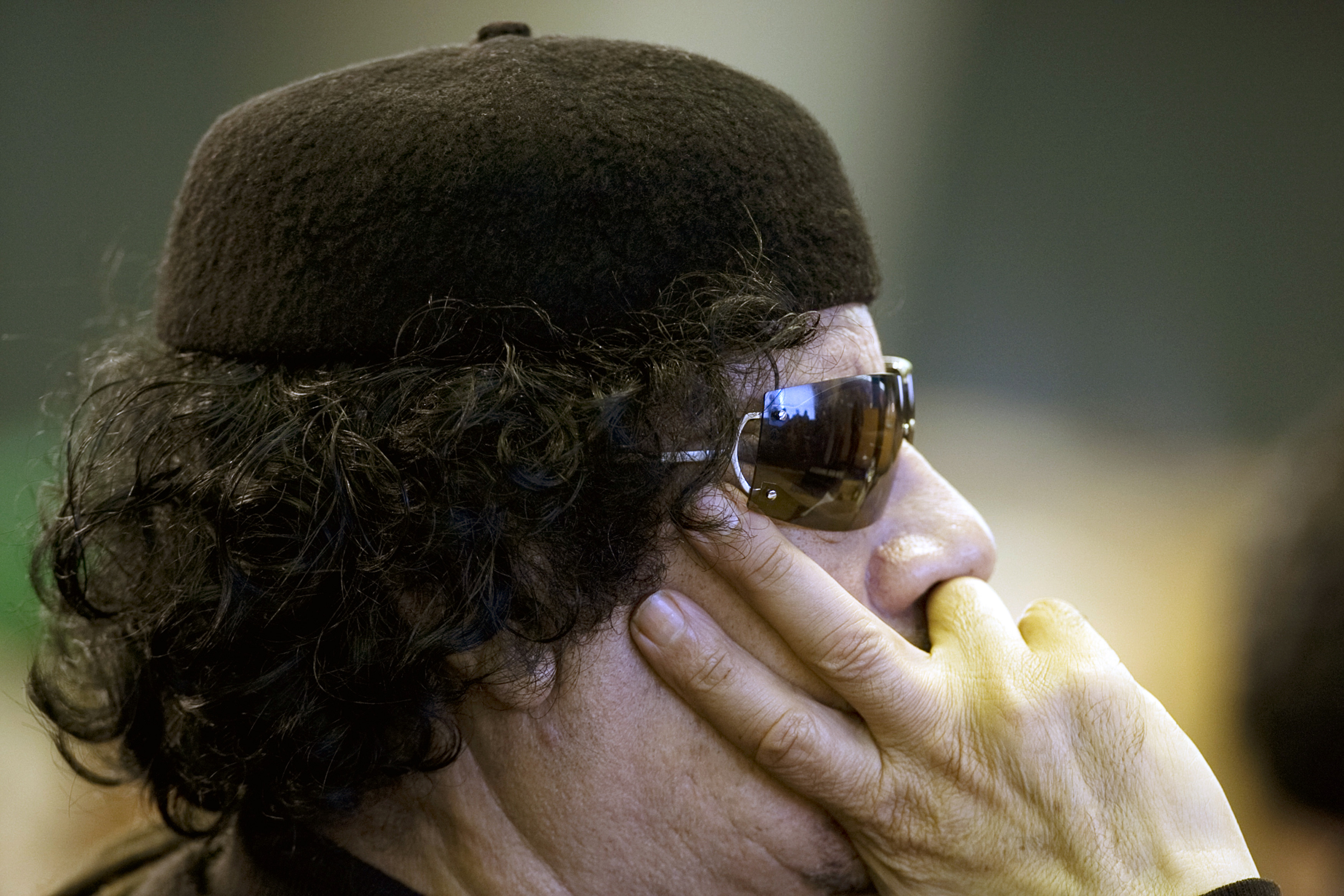
Switzerland’s press has reacted with relief to the release of one of two Swiss businessmen held in Libya, but brought out the knives for the regime of Moammar Gaddafi.
Rachid Hamdani left the Swiss embassy on Monday and crossed into Tunisia after spending nearly 600 days in the North African country.
Fellow businessman Max Göldi left the compound the same day in handcuffs to begin serving a four-month prison term in a saga that last week enveloped the rest of Europe.
“After lengthy and delicate manoeuvring, Bern and Tripoli have exchanged [chess] pieces … Rachid Hamdani to the Swiss, Max Göldi to the Libyans,” wrote François Modoux in Geneva’s Le Temps newspaper.
Modoux referred to what many people in Switzerland and around the world suspect: the arrests were a reaction to the detention of Hannibal Gaddafi and his heavily pregnant wife Aline on assault charges.
“The punishment inflicted on an innocent man, an unjust and ignoble vengeance supposedly to wipe out the affront to Gaddafi’s son when he was arrested in Geneva, suggests that the Libyan authorities continue to mock Switzerland,” continued Modoux.
The Libyan regime denies this. Simon Gemperli, a writer for the Neue Zürcher Zeitung, wasn’t convinced: “So far, Libya has officially denied a connection between the two Swiss and the restoration of the honour of Hannibal Gaddafi. Max Göldi is now a political prisoner:”
The issue of the two men came to a head on Monday. After a weekend of high level diplomacy involving the Swiss, Libyans and European Union officials, Libyan Foreign Minister Moussa Koussa issued an ultimatum to Bern: give up the two men or else.
It was unclear what action Libya might have taken but dozens of security forces surrounded the Swiss compound shortly before midday on Monday. Austrian Foreign Minister Michael Spindelegger later revealed Libya had drawn up plans to storm the embassy.
Light?
“It is good that Switzerland listened to our demands, in the interests of its nationals, and ceased to conceal them in their embassy,” Koussa said later.
In an editorial entitled “Like a light at the end of the tunnel”, the Tribune de Genève warned: “The Gaddafi clan is known for its fits of rage and unpredictable moods. For proof, just think about the threats of police action against the Swiss embassy in Tripoli, which forced European diplomats to spend the night inside.”
The Luzerner Zeitung referenced the “staying power of diplomacy” in Switzerland, and most of the publications seemed to agree the issue had gained traction abroad.
“Nearly every leader in Europe has spoken on the phone with Colonel Gaddafi about the hard-to-manage Swiss,” wrote the NZZ.
“Willingly or unwillingly, the European Union has found itself in an affair that previously did not concern it,” said the Tribune de Genève.
Writing in Zurich’s Tages-Anzeiger, Iwan Städler suspected self-interest: “The other EU countries know only too well that they soon could be put in the same position as Switzerland is now in.”
“Göldi’s only hope is that the EU puts enough pressure on Libya. And that Libya does not dare turn up its nose when the EU asks it to dance,” said the Thurgauer Zeitung.
Since autumn, Switzerland has placed travel restrictions on 188 top Libyan officials, denying them the right to obtain visas for the pan-European Schengen areas. The move meant the officials, including Gaddafi and members of his inner circle, could not travel unrestricted throughout Europe.
Switzerland scolded
The fallout triggered a heated response from Italy, which has close ties with Tripoli, toward Switzerland. It’s one the NZZ found tenuous.
“For example, if Italians had been abducted in a foreign state, there would have been little joy in Rome if the elite of that country could arrive undisturbed on a Schengen visa,” wrote the NZZ.
The Tribune de Genève agreed: “The cabinet has the right to deprive Colonel Gaddafi and his clan of Schengen visas and of their freedom to move around Europe.”
The Tages-Anzeiger noted that the Swiss had had a rough go of it over the past few years in the international arena: “As an accomplice to tax evaders, it was scolded. Like a greed-driven, backwards state.”
It managed a dig at the Italian prime minister, who last year welcomed Gaddafi for the signing of a friendship treaty. “Even Silvio Berlusconi had apparently tried to appease the Libyan dictator.”
“The only thing calculable about him is that he is unpredictable,” the newspaper wrote.
And in the end, it comes down to Gaddafi, and saving face. The colonel, the Basler Zeitung surmised, “will write the last chapter on his own”.
Justin Häne, swissinfo.ch
July 15, 2008: Hannibal Gaddafi and his wife are arrested and charged with abusing their staff. They are released on bail and leave Switzerland. The servants are later compensated and charges withdrawn.
July: Swiss nationals Max Göldi and Rachid Hamdani are arrested. Swiss businesses are forced to shut and the number of flights to Tripoli is cut.
January 2009: A diplomatic delegation travels to Tripoli.
May: Swiss foreign minister visits Libya.
June: Libya withdraws most assets from Swiss bank accounts.
August: The Swiss president apologises in Tripoli for the arrest.
September: Göldi and Hamdani cannot leave the country despite a promise they would be freed by September 1.They disappear after undergoing a medical check-up in Tripoli.
October: A 60-day limit for normalising relations passes.
November: Swiss ministers say they will pursue visa restrictions for Libyans. On November 30 Göldi and Hamdani sentenced to 16 months in prison and fined for visa violations.
January 2010: Their terms are overturned and cut.
February 14: A Libyan newspaper reports Switzerland has drawn up a blacklist of 188 top Libyans.
February 15: Libya stops issuing visas to citizens of nations in the Schengen zone.
February 17-18: Swiss, Libyan, Italian, Spanish and Maltese foreign ministers try to hammer out a solution.
February 22: Göldi hands himself over to Libyan authorities to start four month prison term. Hamdani obtains an exit visa and leaves for Tunisia.

In compliance with the JTI standards
More: SWI swissinfo.ch certified by the Journalism Trust Initiative
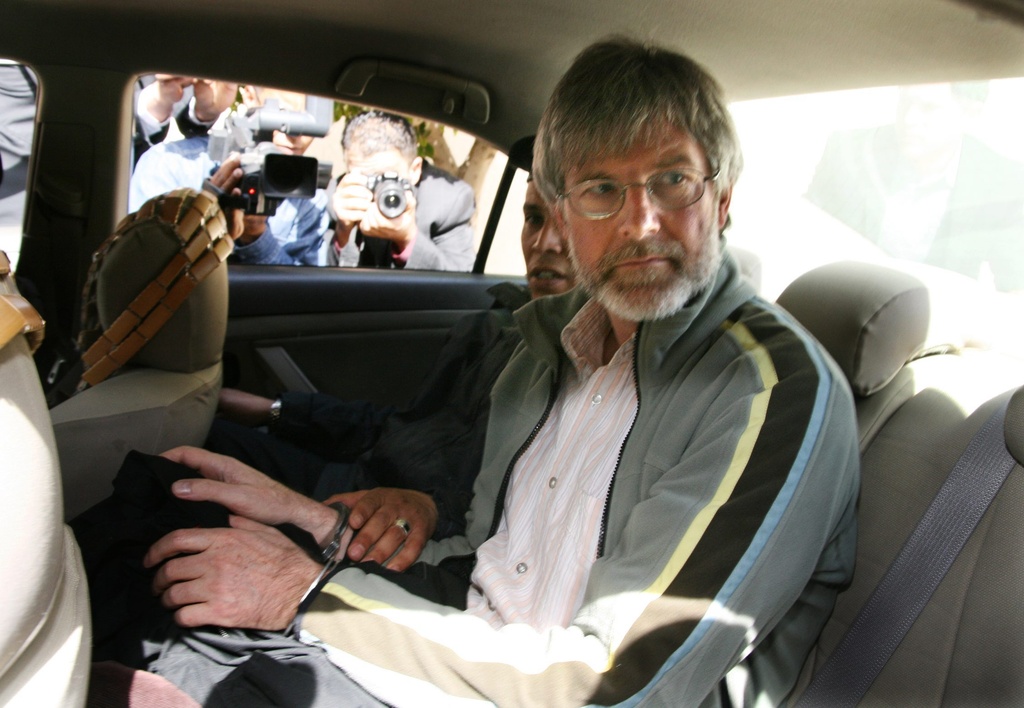
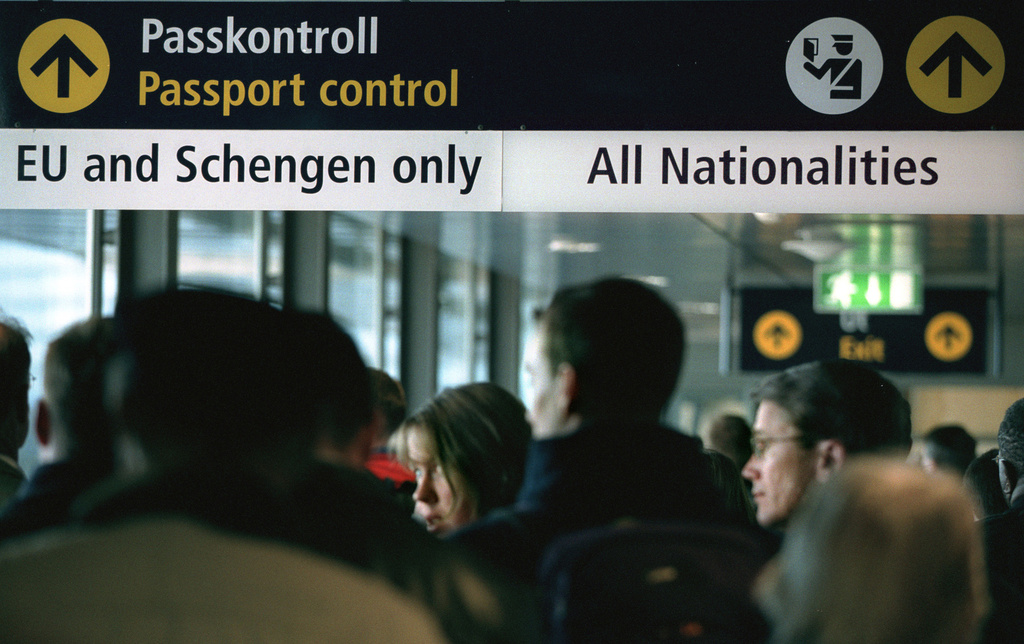
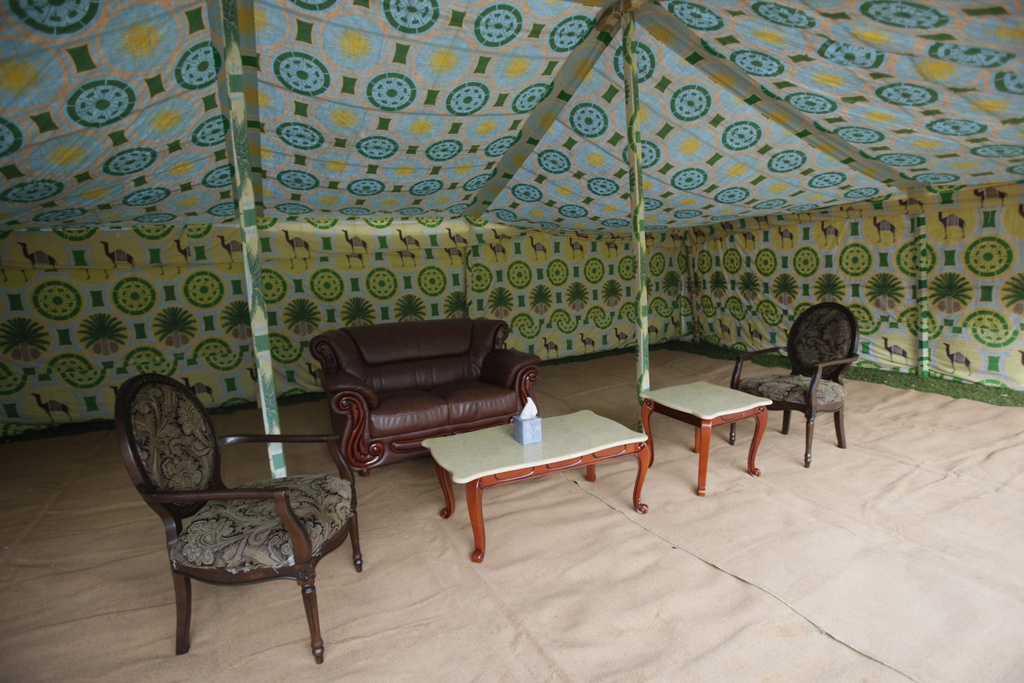
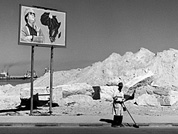
You can find an overview of ongoing debates with our journalists here. Please join us!
If you want to start a conversation about a topic raised in this article or want to report factual errors, email us at english@swissinfo.ch.